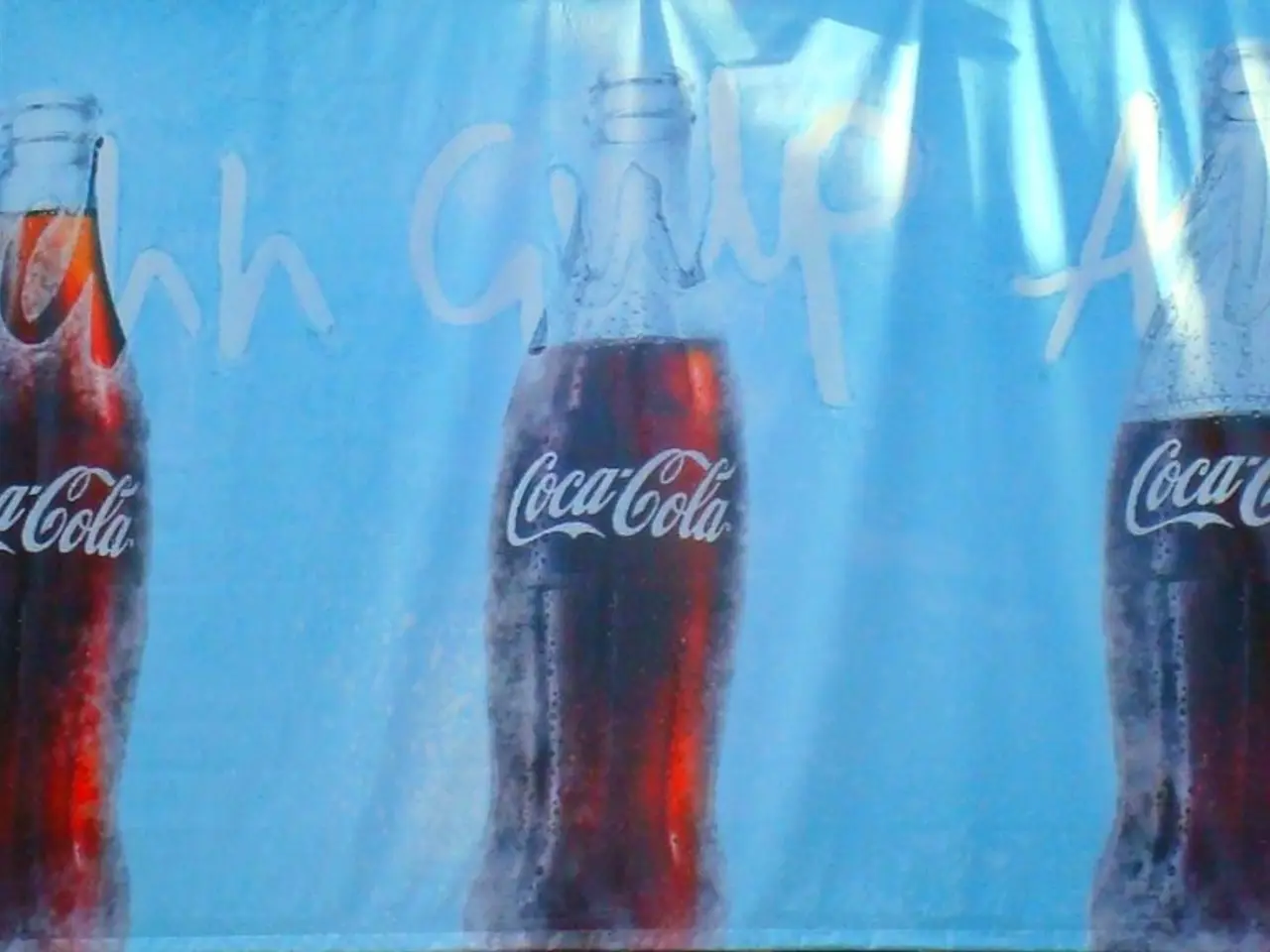Coca-Cola will not fully transition to cane sugar following Trump's statement - In light of Trump's declaration, Coca-Cola decides against a full transition to cane sugar.
In a move that has sparked debate, Coca-Cola has announced plans to switch from high-fructose corn syrup (HFCS) to cane sugar in its popular beverages. This decision, set to be implemented this fall in the United States, has significant implications for health, economics, and politics.
From a health perspective, the switch may not yield significant benefits. Nutritionally, there is little difference between HFCS and cane sugar in terms of their effects on the body, especially when consumed excessively. Both are forms of sugar that contribute to negative health outcomes like obesity and metabolic diseases when overconsumed. Experts emphasize that the main health risk comes from high sugar intake overall, regardless of the source[1][2]. Cane sugar is sometimes perceived as more "natural" or "real," but scientifically it offers no major advantage in health outcomes compared to HFCS[1].
The economic impact of this switch could be substantial. Switching from HFCS to cane sugar may affect supply chains and costs because HFCS, derived primarily from corn, is typically cheaper due to U.S. agricultural subsidies and corn overproduction. Cane sugar often costs more, so changing sweeteners could raise production costs for Coca-Cola. This might influence consumer prices and domestic agricultural economies differently: a boost for U.S. sugarcane farmers but a potential loss for corn producers heavily linked to HFCS industries[2][3].
Politically, the announcement has attracted attention, particularly from former President Donald Trump. Trump, a known supporter of the Midwest, or the "Corn Belt," publicly endorsed the switch, framing it as a positive move toward using “REAL Cane Sugar”[1]. This reflects how food ingredient choices can become politicized symbols linked to notions of authenticity, national agriculture policy, and consumer preference debates.
The Corn Refiners Association (CRA) has criticized Trump's announcement, warning that replacing corn syrup with cane sugar could cost jobs, lower farmers' incomes, and increase foreign sugar imports[4]. On the other hand, Robert F. Kennedy Jr., a long-time critic of HFCS, has welcomed the move, blaming widespread obesity and diabetes in the USA on the use of HFCS in soft drinks[5].
Coca-Cola's new offering is intended to provide more choices for various occasions and preferences. The company aims to cater to a diverse consumer base, offering a range of sweeteners to suit different tastes and dietary preferences. This shift also reflects a growing trend towards transparency and natural ingredients in food and beverage products.
The debate around HFCS and cane sugar extends beyond Coca-Cola. The use of corn syrup, which has been widely used as a sweetener in the US since the 1970s, has been a contentious issue, with critics arguing that it contributes to health problems like obesity and diabetes[6]. However, scientists have not found cane sugar to be healthier than corn syrup[7].
In conclusion, the shift from HFCS to cane sugar in Coca-Cola primarily carries symbolic and economic consequences rather than significant health differences. The discussion involves intersections of nutrition science, agricultural economics, and political communication[1][2][3]. As Coca-Cola prepares to introduce its new offering, it remains to be seen how this decision will impact the company, its consumers, and the broader food and agricultural industries.
[1] https://www.nytimes.com/2021/03/04/business/coca-cola-cane-sugar.html [2] https://www.reuters.com/business/healthcare-pharmaceuticals/coca-colas-switch-cane-sugar-could-hurt-us-corn-farmers-lobby-2021-03-04/ [3] https://www.cnbc.com/2021/03/04/coca-cola-to-use-cane-sugar-in-us-soft-drinks-in-response-to-consumer-demand.html [4] https://www.corn.org/news/cra-statement-on-coca-colas-announcement-to-switch-to-cane-sugar-in-its-soft-drink-products [5] https://www.politico.com/news/2021/03/04/coca-cola-cane-sugar-477461 [6] https://www.ncbi.nlm.nih.gov/pmc/articles/PMC6616060/ [7] https://www.npr.org/sections/thesalt/2015/06/05/412483556/is-cane-sugar-better-for-you-than-high-fructose-corn-syrup
- President of the United States, Robert F. Kennedy Jr., after Trump's announcement, has welcomed the switch from high-fructose corn syrup (HFCS) to cane sugar in Coca-Cola's drinks, blaming widespread obesity and diabetes in the USA on the use of HFCS in soft drinks.
- Politically, the announcement has attracted attention, particularly from former President Donald Trump. Trump, a known supporter of the Midwest, or the "Corn Belt," publicly endorsed the switch, framing it as a positive move toward using “REAL Cane Sugar.”
- The debate around HFCS and cane sugar extends beyond Coca-Cola and has been a contentious issue, with critics arguing that both contribute to health problems like obesity and diabetes.
- From a health perspective, the switch from HFCS to cane sugar in Coca-Cola may not yield significant benefits, as nutritionally, there is little difference between the two in terms of their effects on the body, especially when consumed excessively.




